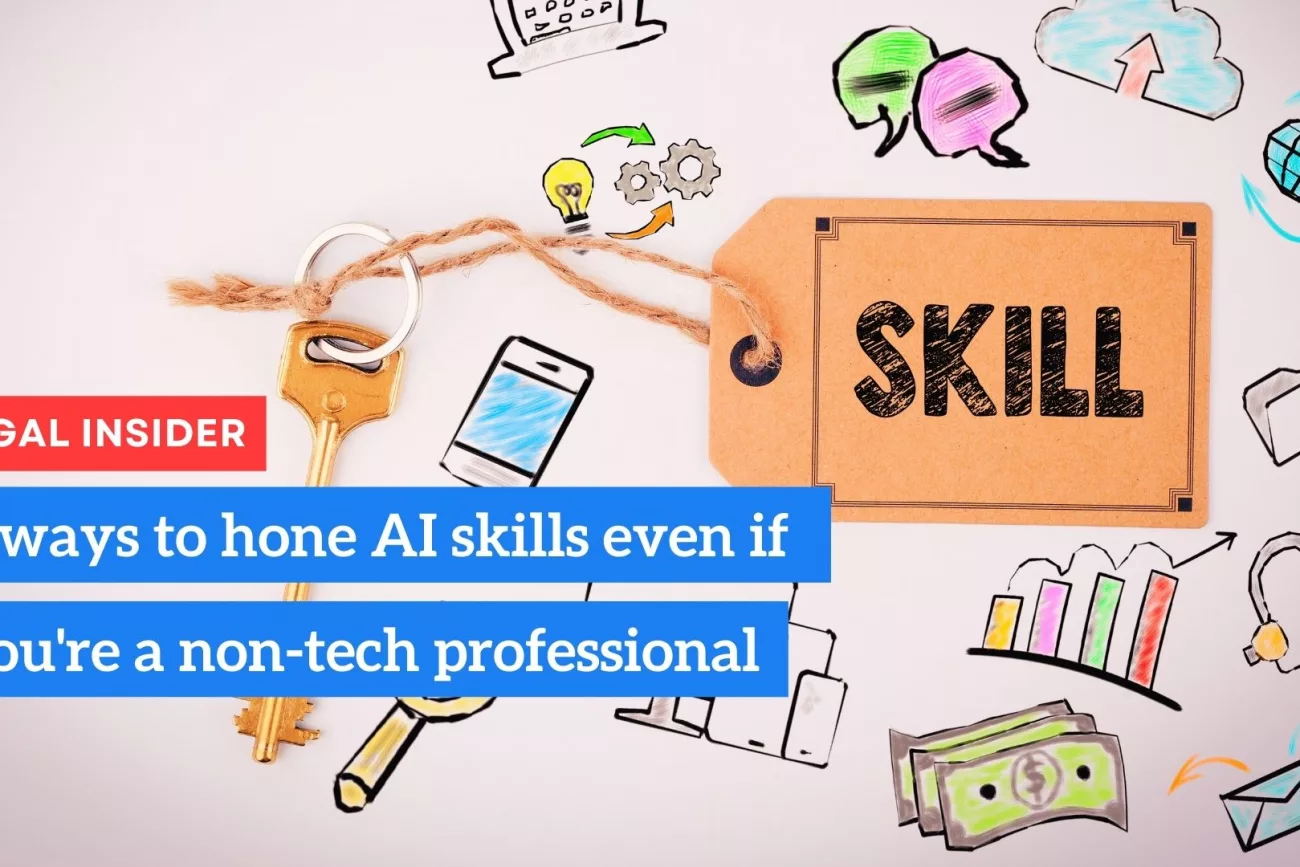
Key Points:
- AI skills aren’t just for tech professionals; they can open up new job opportunities in various fields, including the legal sector.
- To gain AI skills, familiarize yourself with popular AI tools, understand how AI can be applied in your line of work, and implement AI in your routine tasks.
- The demand for AI skills is high, leading to lucrative job opportunities, such as a tax manager role paying an average of $100,445 per year.
- The growing importance of AI in non-technical fields is leading to a major shift in the industry, sparking debates on AI’s role in the future of work.
AI: The Great Equalizer or Divider in Today’s Legal Landscape? ⚖️💻
💼 In the current legal market, the words ‘Artificial Intelligence’ (AI) have the power to instill awe, unease, excitement, and a rush of adrenaline all at once. According to recent data from Adzuna, a global job search platform, the U.S. is at the forefront of AI and generative AI jobs, predominantly in tech-heavy roles. However, for non-technical professionals, particularly in the legal industry, mastering AI skills can swing open the doors to a myriad of job opportunities.🚀
AI: A Friend or Foe of the Non-Tech Professionals?
With roles such as software engineer, deep learning architect, and data scientist dominating the AI landscape, one might be forgiven for assuming that these are the only positions benefiting from the AI revolution. However, James Neave, Adzuna’s head of data science, argues that non-technical roles can reap the rewards of AI knowledge just as much.
In the legal profession, there is a growing role that is particularly starved for AI-savvy professionals: Tax Manager. Law firms, accounting firms, and consultancies are on the prowl for candidates with a potent blend of AI and financial expertise, with the goal of streamlining their operations with the power of large language models like GPT-4. If you’re seeking a well-paid avenue, look no further. The average salary for a tax manager role that leverages AI skills is a whopping $100,445 a year, according to Adzuna, while an average job incorporating AI skills generally pays $146,244 annually.💰
Moreover, experts believe there are plentiful opportunities for the application of AI in fields like customer service, writing, HR, education, and healthcare.
The Legal Industry at the Crossroads: The AI Controversy
But is this shift towards AI cause for celebration or concern within the legal profession? As AI penetrates deeper into the legal sector, it’s shaking the very core of traditional legal practices. This raises profound questions that ignite polarizing debates among legal professionals:
- Is AI a threat to legal jobs or a catalyst for creating new opportunities?👥
- Can AI-powered systems ever match the empathic understanding of human legal advisors?🤔
- Are AI tools, being inherently neutral, capable of executing fair legal judgments without human biases?⚖️
Bridging the AI Divide: Three Steps for Legal Professionals
Neave suggests a three-tier strategy for non-technical legal professionals eager to get their hands on AI tools:- Know Your Tools: Familiarize yourself with popular AI tools. For example, explore the OpenAI website and interact with a few prompts.🖥️
- Apply AI to Your Work: Utilize online resources, including YouTube videos, articles, and certification courses from University of Michigan, Coursera, and more. These resources can guide you on how to apply AI tools like ChatGPT to your practice.
- Implement AI in Routine Tasks: Once you gain confidence in using AI, incorporate it into your day-to-day tasks. But remember to follow your company’s policy regarding AI usage and never input sensitive proprietary data into a public tool like ChatGPT.🔐
📢 Call to Action: Do you want to stay updated with the latest trends impacting your money, work & life? Sign up for our newsletter!
🔥 Final Thought: Is AI the great equalizer or divider in today’s legal landscape? Let’s ignite this debate. Share your thoughts and insights! Let’s make this the viral discussion on LinkedIn today!References
Share this post
Frequently Asked Questions (FAQs)
Q: Is AI relevant only in tech fields?
A: No, AI skills are increasingly in demand in various non-tech fields such as law, finance, customer service, and healthcare.
Q: How can I build AI skills if I am not from a technical background?
A: Start by familiarizing yourself with popular AI tools, learning how to apply AI in your field, and then implementing AI in your daily tasks.
Q: Can AI skills improve my career prospects?
A: Absolutely. With the AI revolution taking over industries, professionals with AI skills can potentially unlock new job opportunities and command higher salaries.
Q: How can AI be applied in the legal sector?
A: AI can be used in various roles, such as tax managers, to make operations more efficient. Law firms are increasingly seeking candidates with both AI and financial expertise.
Q: Is it safe to use AI tools like ChatGPT for work?
A: While AI tools can be powerful, it’s crucial to adhere to company policies and never input sensitive proprietary data into public AI tools.














